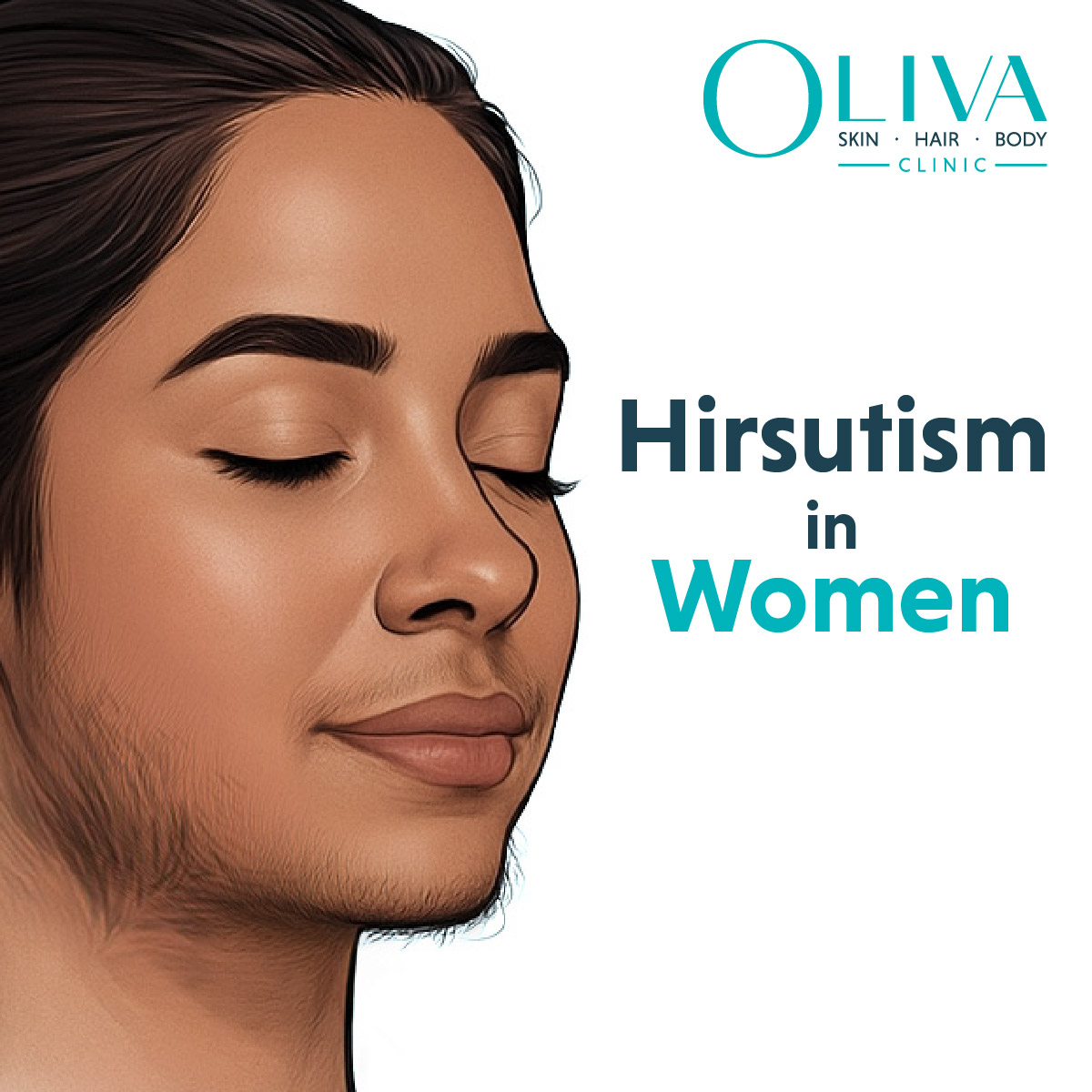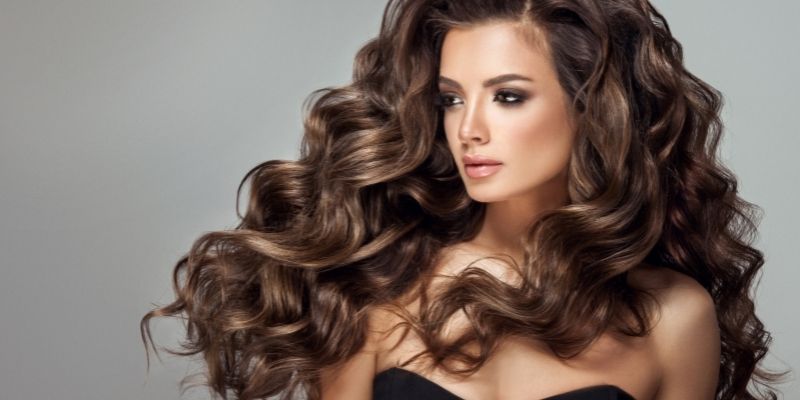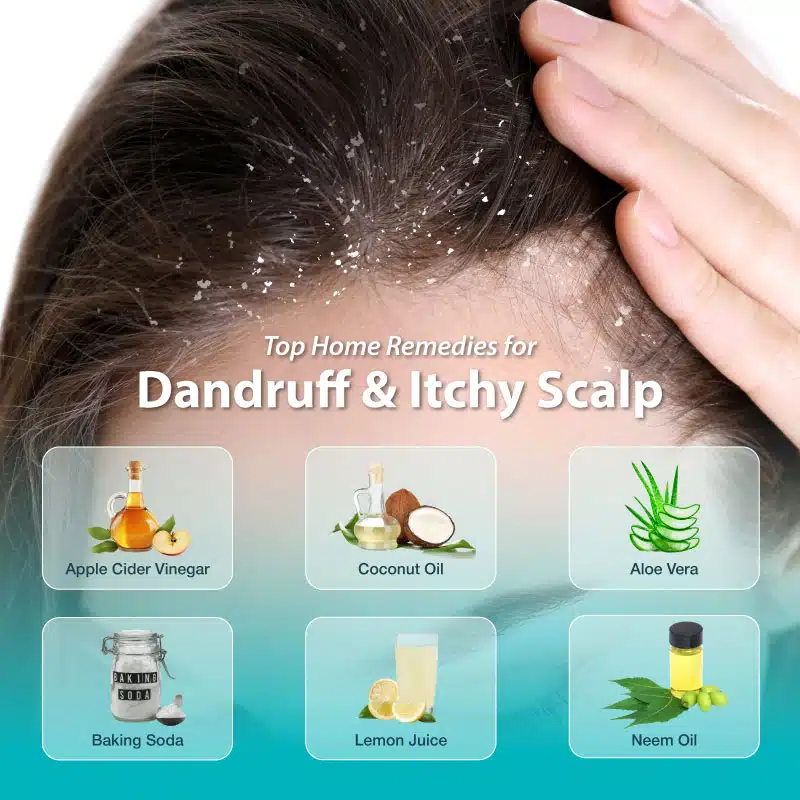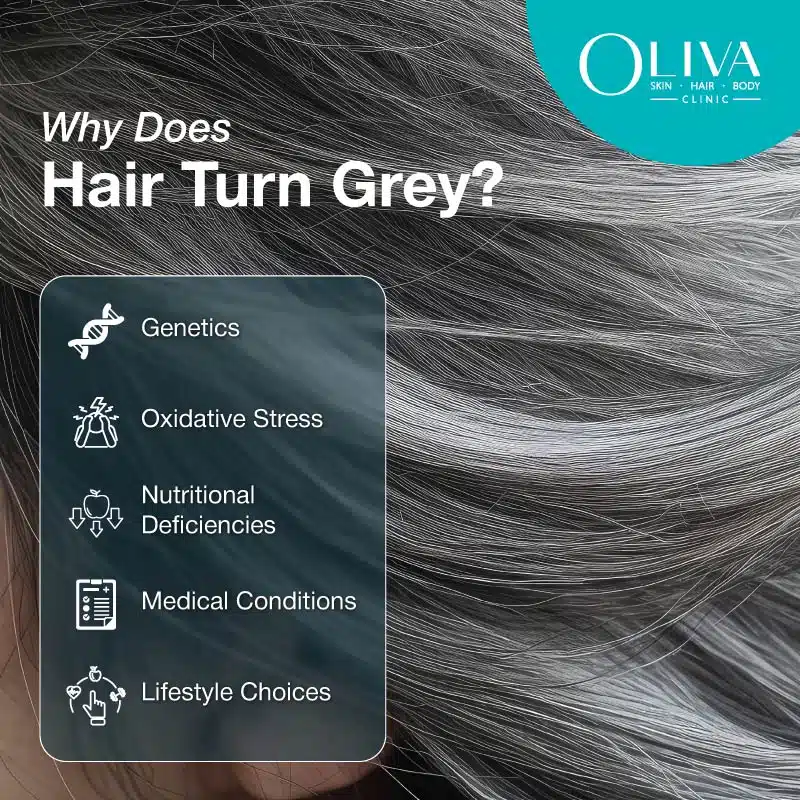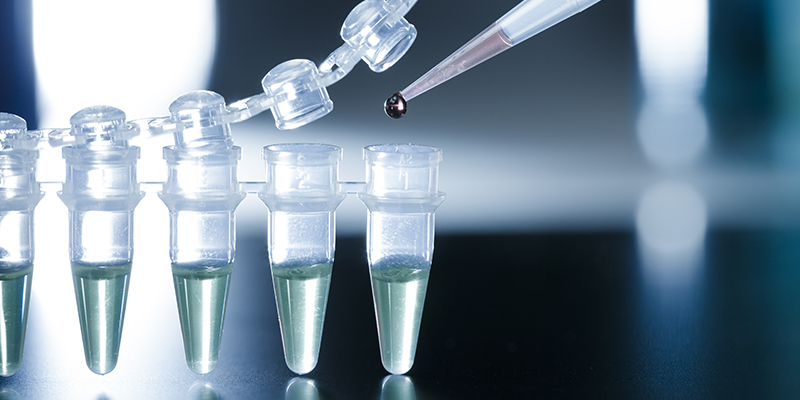In This Article
Curd for Hair: Benefits, Uses & DIY Hair Masks
Everyone desires beautiful, thick and shiny hair. What if we told you that you can tackle your common haircare issues with one simple ingredient in your kitchen? You heard that right! Curd, a kitchen staple and a go-to in every Indian household, is a natural powerhouse for healthy hair. Whether you’re dealing with hair fall, dandruff, frizz, or dryness, curd can be your go-to home remedy. In this blog, we will explore the benefits of curd for hair, the best ways to use it and the expert tips for visible results.
In This Article
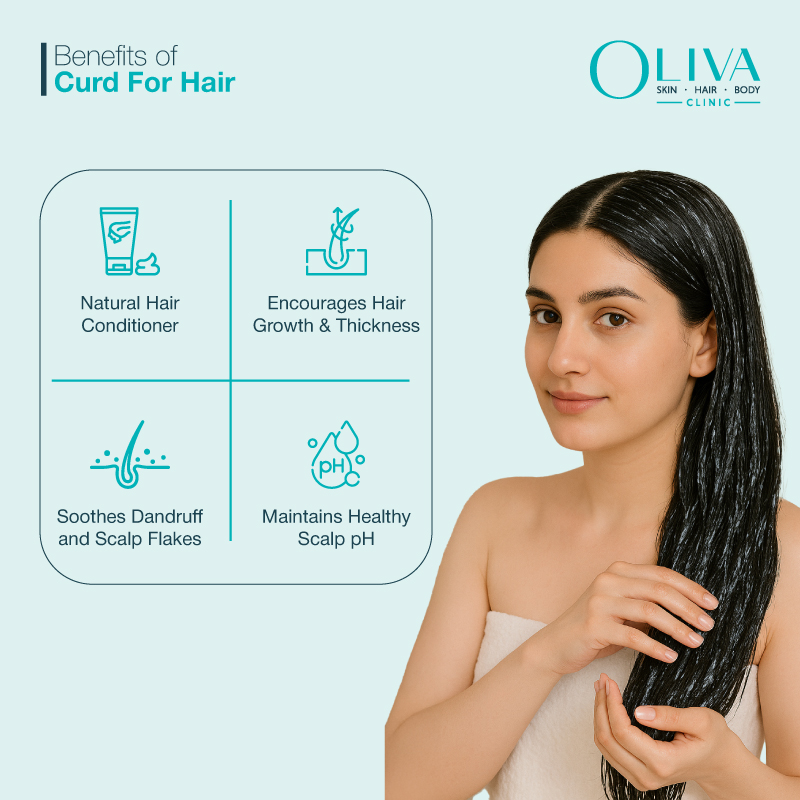
Why Use Curd For Hair?
Is curd good for hair? The answer is yes. Curd is rich in nutrients that will naturally nourish and moisturise your hair. It contains proteins, vitamins, fatty acids, potassium, and zinc, [1] which help nourish the scalp, reduce dandruff, strengthen hair follicles, and promote hair growth. Moreover, curd acts as a natural conditioner to your hair by moisturising and adding shine to the dull and damaged strands.
Top Benefits Of Curd For Hair
Curd is a simple and inexpensive ingredient found in the kitchen. While most of us may love this dairy product for its taste, did you know it also works wonders for your hair? [2] Here are the surprising benefits of curd for hair:
- Moisturises and Hydrates Hair: Curd is high in nutrient content like proteins, vitamins, and essential fatty acids that deeply moisturise and hydrate the hair. They make the dry and brittle hair soft, smooth and manageable by replenishing lost moisture
- Natural Hair Conditioner: The biggest advantage of curd on hair is that it acts as a natural hair conditioner. It has amino acids that make your hair soft, smooth and glossy in appearance. Applying curd as a conditioner makes the hair silky and easy to manage and style.
- Promotes Hair Growth and Strength: Including curd in your daily hair care routine can benefit your hair growth. Dahi for hair contains vitamins such as vitamin B5 and vitamin D, as well as minerals that can stimulate your hair follicles, promoting healthy and faster hair growth.
- Reduces Dandruff and Scalp Issues: Did you know that curd is good for dandruff? Curd contains lactic acid, [3] which helps clean your scalp, relieving it from irritation and itchiness. The anti-inflammatory and antifungal properties of curd help fight dandruff and other scalp issues.
- Adds Shine and Reduces Hair Roughness: One of the best benefits of curd for hair is that it adds shine and lustre to dull and lifeless hair. Curd is nutrient-rich, and applying a curd mask regularly makes your rough and frizzy hair shinier naturally.
- Balances Scalp pH: The fatty acids, protein, and calcium in curd help combat excessive dryness and maintain the scalp’s natural pH balance.
5 Best Hair Packs Using Curd
Curd is a staple ingredient that is easily available in many homes. You can prepare a mask using curd and other ingredients. Here are some DIY hair masks using curd.
1. Curd and Egg Hair Mask (For Hair Growth & Strengthening): Egg white and curd for hair is a magical combination that promotes hair growth, strengthens the strands and nourishes the scalp.
Benefits: Eggs are a powerhouse of protein and healthy fats that deeply nourish your hair from within, boosting its strength and natural shine. Combining eggs with curd encourages healthier hair growth. The combo creates an ultra-hydrating hair mask that works as a deep-conditioning treatment, leaving your locks looking glossy, soft, and visibly healthier.
Ingredients:
- Curd – 1 cup
- Egg – 1
How to Use:
- Beat an egg in a bowl and add one cup of curd to it. Mix them together to form a smooth paste.
- Apply this paste to your hair from the roots to the tips of the hair.
- Leave it on your hair for 45 minutes.
- Wash the mask with lukewarm water, followed by a mild shampoo. Use cold water to rinse the hair.
2. Curd and Lemon for Hair (For Dandruff & Itchy Scalp): Curd and lemon hair mask offers relief from dandruff while giving a healthier scalp.
Benefits: Lemon’s natural antifungal properties help combat dandruff and deeply cleanse the scalp, while curd’s anti-inflammatory and hydrating benefits soothe irritation and restore moisture. This powerful duo offers an effective, natural solution for people struggling with dandruff and scalp irritation.
Ingredients:
- Curd – 1 cup
- Freshly squeezed lemon juice – 2 tablespoons
How to Use:
- Add 2 tablespoons of freshly squeezed lemon juice to one cup of curd. Mix them well together.
- Apply this mixture to your scalp and hair, especially on the areas with dandruff.
- Massage the scalp with your fingers in circular motions.
- Leave it on your hair for about 30 minutes.
- Wash it with lukewarm water, followed by a mild shampoo.
3. Banana and Curd Hair Mask (For Deep Conditioning): Banana and curd hair mask helps in deep conditioning your hair and promotes hair growth.
Benefits: Banana is a great moisturising agent that locks moisture in the hair. Curd eliminates frizz and dullness. Together, the combo strengthens your hair and gives it a shine.
Ingredients:
- Curd – 2 tablespoons
- Banana – 1
How to Use:
- Take a banana and cut it into small chunks. Place the chunks in a blender and add curd to it. Blend it together to form a smooth paste.
- Apply this paste to your hair from the roots to the tips of the hair.
- Leave it on your hair for 45 minutes.
- Wash the mask with lukewarm water, followed by a mild shampoo. Rinse the hair thoroughly with cold water.
4. Curd and Honey for Hair (For Shine & Hydration): A Curd and honey hair mask is great for hydration and giving the hair a shiny, glossy look.
Benefits: Both honey and curd are natural conditioners that lock moisture. The combo reduces dryness and makes your hair soft and shiny. Additionally, it helps you get rid of itchiness and irritation on the scalp.
Ingredients:
- Curd – 1 cup
- Honey – 2 teaspoons
How to Use:
- Take one cup of curd in a bowl and add 2 teaspoons of honey to it. Mix them well together.
- Apply this paste to your hair from the roots to the tips of the hair.
- Leave it on your hair for about 20 minutes.
- Wash it with lukewarm water, followed by a mild shampoo. Use cold water to rinse the hair.
5. Coconut Oil and Curd for Hair (For Frizz & Damage Repair): Coconut oil and curd hair mask offers nourishing benefits that promote hair growth, reducing frizziness and adding shine.
Benefits: Coconuts have fatty acids that nourish the hair, help with hair growth and reduce breakage. The combo reduces dandruff, strengthens hair and adds shine and softness.
Ingredients:
- Curd – 1/2 cup
- Coconut Oil – 2-3 tablespoons
How to Use:
- Take half a cup of curd in a bowl and add 2 tablespoons of coconut oil to it. Mix them well until they form a consistent mixture.
- Apply this paste to your hair from the roots to the tips of the hair.
- Leave it on your hair for about 1 hour.
- Rinse it with a mild shampoo.
How To Apply Dahi For Hair Growth?
You must know the correct application methods to enjoy the maximum benefits of curd for hair. Here are a few ways that will help you understand how to use curd for hair:
- Thoroughly comb your hair to detangle it.
- You can combine curd with other natural ingredients like aloe vera, honey, lemon, or olive oil to form a hair mask for added benefits.
- Mix all the ingredients thoroughly to prepare the mask.
- Apply curd on scalp and hair directly.
- Leave it for 30 minutes.
- Wash it with lukewarm water.
- Rinse it with a mild shampoo.
- Dry your hair.
Side Effects Of Using Curd For Hair
While curd nourishes the hair and offers several other benefits, overuse or improper application can cause side effects. Here are some of the common side effects of curd on hair:
- Greasy buildup
- Scalp irritation
- Allergic reactions
- Dryness
- Foul odour
Everyone’s skin and hair react differently, so conducting a patch test is advisable before trying any new product.
Expert Tips for Using Curd for Hair
Whether you are using dahi for dandruff or want to try dahi for hair growth, here are some expert tips to follow:
| Hair Type | Mask Ingredients | Mask Application |
| Oily Hair | Curd + Lemon juice + Honey | Once every 10-14 days |
| Dry Hair | Curd + Olive oil / Coconut oil | Once or twice a week |
| Normal Hair | Curd + Egg | Once a week |
Mistakes to Avoid While Applying Curd For Hair
While curd nourishes the hair and is highly beneficial, improper application or usage can reduce its effectiveness. Here are some of the common mistakes to avoid when applying curd for hair:
- Always use fresh curd only.
- Use only an appropriate amount of curd. Do not overapply.
- Rinse your hair thoroughly to remove any residue of curd. Not rinsing properly will leave behind traces and give a foul odour.
- Do not leave the mask on your hair for too long, as it can lead to scalp irritation.
- Use only natural ingredients when preparing a hair mask with curd. Using inappropriate ingredients will diminish the benefits and irritate the scalp.
Takeaway
Curd contains certain nutrients that may temporarily support hair health, but the effects are often short-lived and vary from person to person. For long-term results, it’s essential to adopt a holistic hair care routine that includes a balanced diet, adequate hydration, regular washing and conditioning, and limiting the use of heat styling tools and harsh chemical products. Consider consulting a dermatologist or a hair care expert at Oliva Clinics for long-lasting solutions to hair problems.
Frequently Asked Questions
Yes. You can directly apply curd on your scalp and hair. You can mix curd with other ingredients like honey, aloe vera, or olive oil for added benefits. Leave it for 30 min before washing it off with lukewarm water, followed by a mild shampoo.
Both curd and egg offer great benefits to the hair. While curd has hydrating and moisturising properties, egg is rich in protein that strengthens the hair and adds shine. The combination of egg and hair can work magic by strengthening the hair and reducing hair loss and dandruff while being a super conditioner.
Apply dahi for hair and leave it on for about 30-45 minutes. This gives your hair ample time to absorb the nutrients and condition it. Wash it with lukewarm water, and then rinse with a shampoo.
Yes. Curd contains lactic acid that cleans your scalp without disturbing the pH levels. The anti-inflammatory and antifungal properties of curd fight dandruff, reduce other scalp infections and soothe itchiness.
Curd is rich in zinc, protein, fatty acids, minerals, B vitamins and calcium that help improve hair strength and growth.
Dahi for hair offers various nourishing benefits, as follows.
- Soothes the scalp
- Acts as an anti-dandruff agent
- Reduces hair fall
- Promotes hair growth
- Moisturises dry hair
- Reduces frizz and adds natural shine
- Acts as a natural hair conditioner
Curd is a good source of essential nutrients like protein, vitamins, calcium, biotin, and lactic acid that help improve hair growth and overall hair health.
Applying dahi mask for hair can help reduce hair fall. The essential nutrients and proteins in curd strengthen the hair from the roots, thereby minimising hair loss.
You can apply curd on hair regularly, but not daily. If you have normal hair, apply it once a week. If you have dry or frizzy hair, use it twice a week. For an oily scalp, apply it once every 10-14 days to avoid excessive greasiness. Regular application of curd helps you benefit from its nourishing and moisturising properties.
No, it is not advisable to apply curd on already oiled hair. Curd contains essential nutrients, and applying it to oiled hair will limit the absorption ability of the scalp and hair. Instead, you can do this. To maximise the benefits, mix curd with coconut or olive oil before applying.
People with lactose intolerance should avoid curd, as it may lead to allergic reactions or adverse effects.
Curd is an excellent source of vitamins like Vitamin A, Vitamin B12, Riboflavin (Vitamin B2), Vitamin D, and other B vitamins like B6 and pantothenic acid.
While curd offers nourishing benefits to the hair, overuse or improper application can cause side effects. These include:
- Curd makes the scalp oily and greasy if it is not applied correctly or washed appropriately.
- Excessive usage of curd can cause protein overload on hair, leading to stiffness and breakage.
- Those allergic to dairy products or curd may experience irritation, itchiness or redness on the scalp.
- Frequent usage of curd for hair can disrupt the scalp’s natural pH balance.
- The lactic acid content in the curd can cause dryness if applied excessively or left on the hair for too long.
- If you don’t rinse the curd thoroughly with water and shampoo, it will leave a residue, creating a foul odour.
It is always advisable to conduct a patch test before trying.
Curd is a natural conditioner that moisturises and hydrates hair strands, smoothens them and reduces frizz.
Yes, you can combine it with other natural ingredients like honey, aloe vera, or eggs for added benefits.
Yes. Curd can benefit an oily scalp by deep cleansing, removing dandruff and maintaining a healthy scalp environment. However, limiting the application to once every 10 to 14 days is advisable. Frequent use of curd on oily hair may increase greasiness.
Curd acts as a natural conditioner. It is rich in fatty acids, proteins, and vitamin B12 that deeply nourish the scalp, hydrate hair strands, and improve overall hair texture. Regular use can help soften dry hair, enhance shine, and support healthy hair growth.


